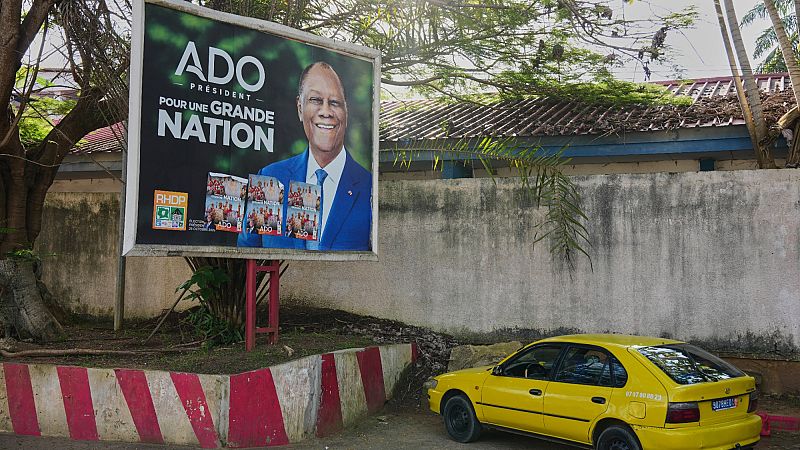Ivory Coast goes to the polls as Ouattara seeks fourth term

Polls have opened in Ivory Coast where the country is voting to elect its next leader.
Longtime President Alassane Ouattara is seeking a fourth term that would extend his rule to almost two decades.
The election is the latest example of aging men continuing to hold power in Africa, the continent which boasts the youngest population in the world. Cameroon's Paul Biya, 92, Uganda's Yoweri Museveni, 81, and Equatorial Guinea's Teodoro Mbasogo, 83, are some other older African leaders still in power.
Five candidates are jostling for Ivory Coast’s top job, but many see the election as going one way, with Ouattara, the 83-year-old leader of the world’s biggest producer of cocoa, retaining his seat. Ouattara’s party, the Rally of Houphouetistes for Democracy and Peace, or RHDP, also holds a majority of seats in parliament with 169 out of 255 seats.
Ouattara has overseen Ivory Coast’s economic reconstruction since the civil war, achieving an annual growth rate of 6 percent backed by a boom in cocoa. However, more than a third of the country’s 30 million people still live in poverty, and jobs are scarce for young people.
Challengers
Ouattara is being challenged by four other candidates, including Simone Gbagbo, a former first lady, and Jean-Loius Billion, a former commerce minister under Ouattara. They have all promised jobs and new agricultural policies. Analysts say they do not have a real chance at unseating Ouattara.
At his final rally in Abidjan on Thursday, Ouattara told his supporters, “The growth has been huge, but we need to continue.”
A former deputy managing director at the International Monetary Fund, Ouatarra’s investment in the public sector and infrastructure has endeared him to his supporters.
Crackdown on protests
The build-up to the election has been marred by protests against the exclusion of major candidates who could pose a challenge to Ouattara’s ambition. The final list of registered candidates did not include Tidjane Thiam, a former Credit Suisse executive, and Laurent Gbagbo, a former candidate who still retains the support of a large section of the voter base.
Their supporters had taken to the streets, with several hundred people arrested and dozens jailed already. This has raised the specter of past electoral crises that killed at least 3,000 people in 2010 and 2011 and almost 100 people in 2020. The government also restricted the gathering of people outside the five parties contesting the election and deployed more than 40,000 personnel across the country.
Today

